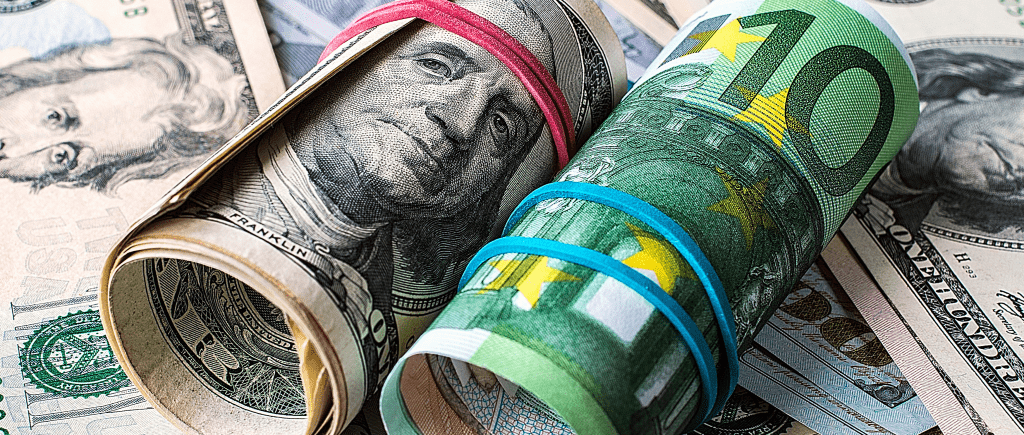The euro rose to a one-week high on Monday, benefiting from the dollar’s decline after many Federal Reserve officials indicated that they were not in favour of an increased rate of an interest rate hike.
These comments, made late last week, pulled the dollar back from its two-decade high and encouraged traders to take more risks, boosting global stocks and other currencies, especially the euro.
The dollar index, which measures the performance of the US currency against six global currencies, fell 1.8 percent from its highest level in 20 years recorded last week. By 0800 GMT, it was down 0.35 percent to 107.48. The euro, the main component of that indicator, rose 0.5 percent to $ 1.0149, after falling below the parity level last week for the first time since 2002.
Other central banks are accelerating the pace of rate hikes, with Canada making a 100bp hike last week and the announcement of New Zealand’s highest inflation in three decades today fueling speculation for a 75bp hike, instead of 50bp earlier.
This pushed the New Zealand dollar to rise to a ten-day high against the dollar at 0.62 dollars, an increase of 0.4 percent.
The Australian dollar also touched its highest level in a week.
Commodity-dependent New Zealand and Australian dollars are getting some support from hopes of policy easing in China, as authorities signalled support for the real estate and banking sectors.
Some believe the Chinese central bank may provide a long-awaited easing policy on Wednesday.
The value of the yuan traded abroad rose 0.4 percent to 6.74 per dollar.
It is expected to be a crucial week for the EUR, as the European Central Bank is set to raise interest rates by 25 basis points on Thursday for the first time in more than a decade.
On the same day, Russia is supposed to resume gas supplies through the Nord Stream pipeline after a ten-day maintenance outage. If supplies are not resumed, this will cause concern in markets that are already fearful of a recession in the bloc.
In Italy, investors are watching to see the fate of Prime Minister Mario Draghi, who will address Parliament this week after the country’s president rejected his resignation.
 Noor Trends News, Technical Analysis, Educational Tools and Recommendations
Noor Trends News, Technical Analysis, Educational Tools and Recommendations





